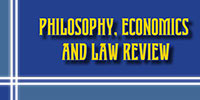Kateryna ONOPRIIENKO, Tetyana VASYLIEVA, Salmane BOUREKKADI, Robert REHAK, Nadiia ARTYUKHOVA
ONOPRIIENKO K., VASYLIEVA T., BOUREKKADI S., REHAK R., ARTYUKHOVA N. (2023), EFFECTIVENESS OF OPEN EDUCATION IN THE LIFELONG LEARNING SYSTEM.
PHILOSOPHY, ECONOMICS AND LAW REVIEW. Volume 3, no. 2, 103-111
DOI: 10.31733/2786-491X-2023-2-103-111
Abstract. Today, open education plays an important role in the lifelong education system. It is open education that gives adults the opportunity to study in the time available to them and receive formal and informal education. Open adult education is not only a tool for personal development, but also an important element of social progress, democracy and building a society, as well as a transforming economy. Ensuring access to quality adult education is essential for achieving sustainable economic development of the country and ensuring a decent quality of life for all citizens.
Open education creates opportunities for adults to learn throughout their lives, which helps them change careers, increase their qualifications and keep up-to-date in today’s world. Countries with a high level of education of the population have advantages in high-tech industries, which helps to stimulate economic development and attract investment. Skills acquired through open education help adults find better jobs or increase their competitiveness in the labor market. Ensuring access to education for all sections of society helps reduce social disparities and ensure equal opportunities for all.
As an innovative phenomenon, open education promotes the development of critical thinking and analytical skills, which allows adults to be more informed citizens and make informed choices. The opportunity to learn and develop helps adults realize their potential, find exciting new interests and achieve personal growth. Acquiring new knowledge and skills helps increase life satisfaction, improves well-being and psychological state, which affects the social indicators of countries. Adults with fresh knowledge and approaches can create new ideas, develop innovative projects and make a significant contribution to social progress.
This article is devoted to determining the place of open education in the general system of lifelong education system and analyzing its effectiveness in Ukraine and some European countries. It was established that open education is the tool that gives adults the opportunity to acquire knowledge outside educational institutions and during extracurricular time, and also open education is a driver of human development as an employee, i.e. a part of the labor market and as a result stimulates the development of the country’s economy.
Keywords: lifelong learning, open education, effectiveness of education.
References
- Adult participation in learning. URL : https://ec.europa.eu/eurostat/web/products-datasets/- /sdg_04_60.
- Berestok, O. (2023). Electronic educational resources and open electronic educational resources as ICT tools in the implementation of distance learning in higher educational institutions. Engineering and Educational Technologies, no. 67.
- Hilton III, J. (2020). Open educational resources, student efficacy, and user perceptions: A synthesis of research published between 2015 and 2018. Educational Technology Research and Development, 68 (3), pp. 853-876.
- Huang, R., Tlili, A., Chang, T. W., Zhang, X., Nascimbeni, F., & Burgos, D. (2020). Disrupted classes, undisrupted learning during COVID-19 outbreak in China: application of open educational practices and resources. Smart Learning Environments, 7, pp. 1-15.
- Kalir, J. (2020). Social annotation enabling collaboration for open learning. Distance Education, 41 (2), pp. 245-260.
- Kyriakides, L., Panayiotou, A., & Antoniou, P. (2023). Establishing a comprehensive theory of teaching and learning: The contribution of the dynamic model of educational effectiveness. Theorizing Teaching: Current Status and Open Issues, pp. 131-157.
- Lapum, J., Bailey, A., St-Amant, O., Garmaise-Yee, J., Hughes, M., & Mistry, S. (2022). Equity, diversity, and inclusion in open educational resources: An interpretive description of students’ perspectives. Nurse Education Today, 116, pp. 1054-1059.
- Lee, K. (2020). Who opens online distance education, to whom, and for what? Distance Education, 41 (2), pp. 186-200.
- Maryenko, M., & Kovalenko, V. (2023). Artificial intelligence and open science in education. Physical and Mathematical Education, 38 (1), pp. 48-53. DOI : https://doi.org/10.31110/2413-1571-2023-038-1-007.
- Menzli, L., Smirani, L., Boulahia, J., & Hadjouni, M. (2022). Investigation of open educational resources adoption in higher education using Rogers’ diffusion of innovation theory. Heliyon, 8 (7).
- Osadchuk, V. (2022). The development of open education as a phenomenon of the 21st century. Adult education: theory, experience, perspectives, 21 (1), pp. 58-67.
- Ostroga, M., Shamonya, V., & Shershen, O. (2022). Digital educational platforms as a tool for implementing non-formal education. Education. Innovation. Practice, 10 (4), pp. 27-36.
- Paskevicius, M., & Irvine, V. (2019). Open Education and Learning Design: Open Pedagogy in Praxis. Journal of Interactive Media in Education, 2019 (1).
- Petrenko, L. (2020). Strategic guidelines for the professional development of scientific and pedagogical workers in the conditions of open education. Bulletin of Postgraduate Education. Pedagogical Sciences series, 13 (42), pp. 170-184.
- Priyma, S. (2015). Theoretical and methodological principles of designing and functioning of systems of open education of adults in Ukraine (Doctoral dissertation, Bohdan Khmelnytskyi Melitopol State Pedagogical University).
- Tavakoli, M., Hakimov, S., Ewerth, R., & Kismihók, G. (2020, July). A recommender system for open educational videos based on skill requirements. In 2020 IEEE 20th International Conference on Advanced Learning Technologies (ICALT). IEEE, pp. 1-5.
- Tlili, A., Nascimbeni, F., Burgos, D., Zhang, X., Huang, R., & Chang, T. (2023). The evolution of sustainability models for Open Educational Resources: Insights from the literature and experts. Interactive Learning Environments, 31 (3), pp. 1421-1436.
- Wang, V., Torrisi-Steele, G., & Reinsfield, E. (2021). Transformative learning, epistemology and technology in adult education. Journal of Adult and Continuing Education, 27 (2), pp. 324-340.
- Yaraş, Z., & Gündüzalp, S. (2021). E-readiness in the effectiveness of distance education. Quarterly Review of Distance Education, 22 (3), p. 47.
- Zawacki-Richter, O., Conrad, D., Bozkurt, A., Aydin, C. H., Bedenlier, S., Jung, I., … & Kerres, M. (2020). Elements of open education: An invitation to future research. International Review of Research in Open and Distributed Learning, 21 (3), pp. 319-334.
